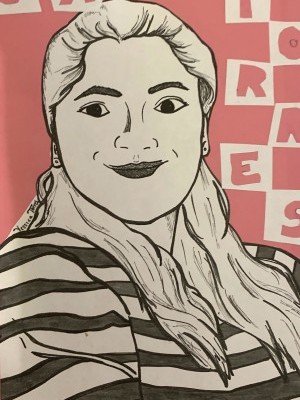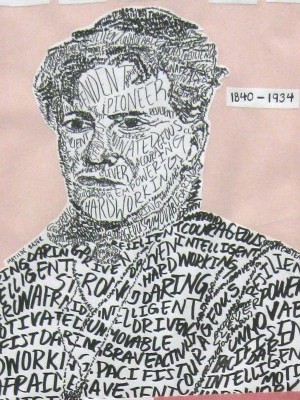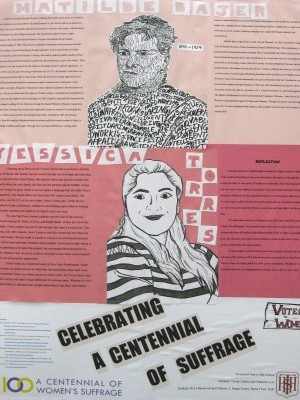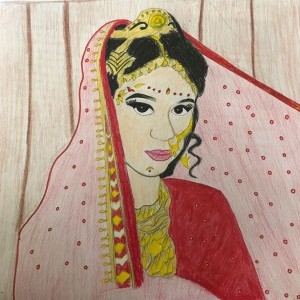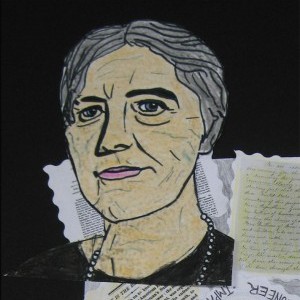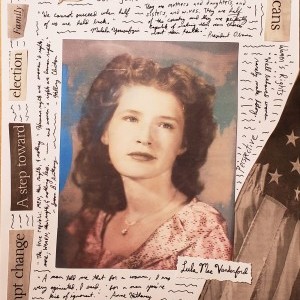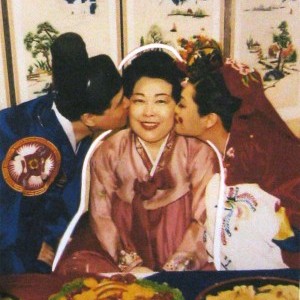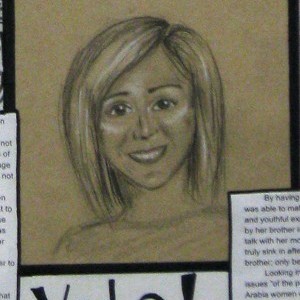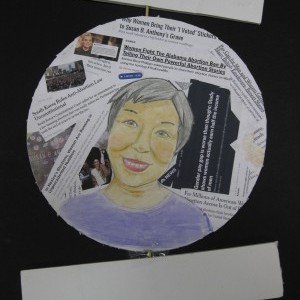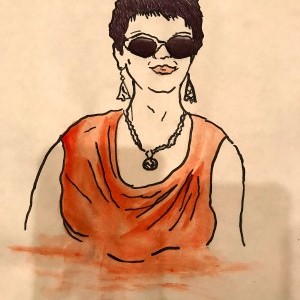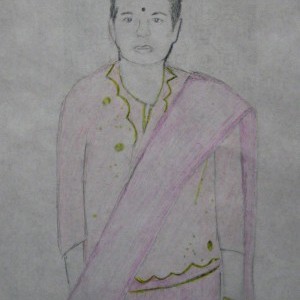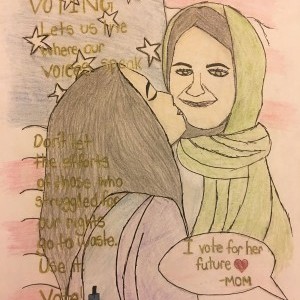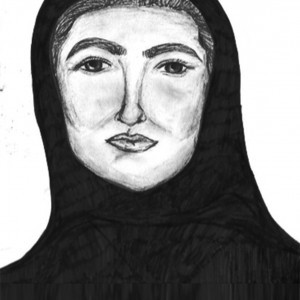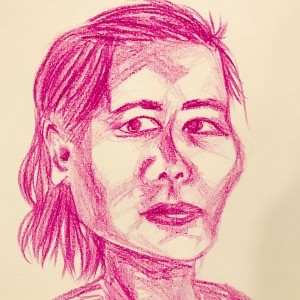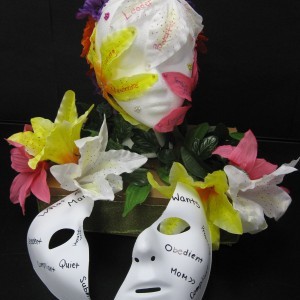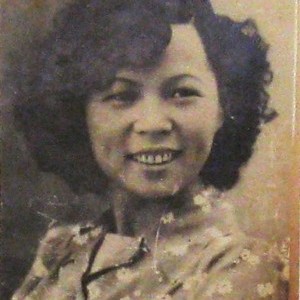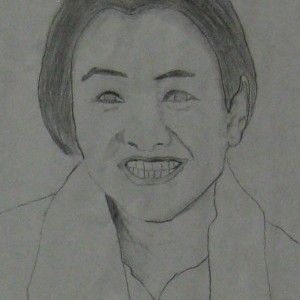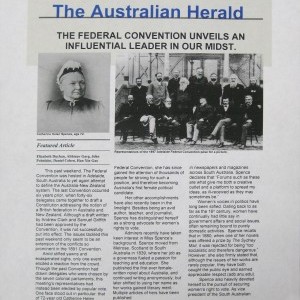Rova Raveloson & Yasmin Hasan Torres
Townsend Harris High School | Flushing, NY | 11th Grade
Inspirational Family Member
Yessica Torres
Growing up in Peru was all Yessica Torres had ever known until the age of eleven. Her family was her world, but that was no longer the case once she moved to the United States. She quickly had to get used to a whole new world where the only family she had was her parents and her brother. It was scary being in a place where everyone spoke a language that she didn’t know. Thankfully, she found others like her in her ESL classes and slowly, but surely, saw the U.S. as her new home. From a young age, Torres always looked to make a difference, whether it was holding open a door or helping someone translate from Spanish to English, and vice versa.
The year that Torres turned eighteen was the year of the election between George W. Bush, Al Gore, and Ralph Nader. Unlike the rest of her friends, Torres couldn’t go out to vote because she wasn’t a citizen yet. This, along with other reasons, drove Torres to take her citizenship test when she turned twenty. She has made it a point to vote at every presidential election, as well as local and state elections when possible. Torres knows that voting is not something to be taken for granted; she encourages those around her to vote whenever they are given a chance, and push to have their voices heard if they are not given the opportunity.
Torres works as a registered nurse at New York Presbyterian, where the nurses are given surveys on what they like and dislike about their work environment. Some view these surveys as bothersome, but Torres knows that these surveys can make a huge difference if everyone votes. Whether it’s on a small scale or a national scale, people should know that their vote matters.
Historical Figure I Admire
Matilde Bajer
Could it be possible that the Women’s Suffrage Movement as we know it in America has been a collective universal effort? The simple answer is, yes, but the follow-up question is, how?
One of the most remarkable and foremost feminists in the late 19th century, Matilde Bajer, lay the foundation for the suffrage movement. She founded the oldest women’s rights organization in the world, the Danish Women’s Progress Association (the Kvindelig Fremskridtsforening), in 1886. This society is explicitly nonpartisan and autonomous and has followed a strategy of promoting change through legislation. It also opened doors for other Women’s Societies, such as, the Women’s Society that works to achieve gender equality so that all women can express themselves fully in public life, get an education, a job and a family. Their main objective is to free women from the chains of structural, social or cultural oppression; to let them be free and rise up as the strong women they are. And rise up they did, in 1915 the Danish Constitution was revised, giving women the right to vote.
In the 1920s, the provision of equal opportunity laws influenced the present-day legislative measures to grant women access to education, work, marital rights and other obligations. Sometimes, what is taken for granted is the time period we live in now. We do not understand the longevity of these women; the hard work and dedication it took to see even the slightest sliver of daylight. In 1887, the Danish women publicly demanded the right for women’s suffrage for the first time through the Danish Women’s Progress Association. At the same time, working-class women also organized to improve women’s lives through the formation of labor unions and the Social Democratic Party. Founded in 1885, the Women Workers Union (Kvindeligt Arbejderforbund) unionized unskilled women workers to fight for better working conditions and wages. Through union and party affiliations, working-class women’s organizations have pursued state-supported programs, such as daycare, parental leave, health care, unemployment compensation, and old-age pensions. Despite this, it wasn’t until 1890 that an active women’s suffrage campaign was organized through upheaval and manifestation.
Matilde Bajer impacted the world, not just Denmark. In 1906 she took the initiative to form the Danish Women’s Peace Association (Dansk Fredsforening). But more importantly, she also participated in international peace meetings. She is undoubtedly one of the most important Danish feminists because of her early contributions to a cause that was not yet recognized as achievable to the ordinary woman. Her life is worthy of acknowledgement because she fought for people like her and not just herself. She helped innovate the start of women’s suffrage that soon saw no border it couldn’t cross. It was her groundbreaking foundation that maintains an inviolable outcome. Women’s voices were heard substantially not just in Denmark in 1915 when the Constitution was revised, but a pattern emerged because in 1920 the 19th Amendment was passed that granted American women the right to vote and in 1915 as well, women from the U.S. and Europe gathered in The Hague in the Netherlands for the first International Congress of Women—later known as the Women’s International League for Peace and Freedom. Though one person was thoroughly analyzed, we must understand that change is only possible with the unity of all women and people alike!
SOURCES +
What the Project Means to Me
Learning about how Matilde Bajer founded the oldest women’s rights organization in the world and speaking to my mom about how she had to go through the citizenship process in order to vote in the U.S. made me realize that I have been taking the fact that I can vote once I turn eighteen for granted. I have never taken the time to stop and think about how different my life would have been if I was born just a little over a century ago. It is also scary to think that at some point women did not even think to fight for their right to vote. It was just expected of them to stay home and they didn’t see the problem with that.
We learn about women’s suffrage in class, but I have definitely gained a greater respect for suffragettes. It is unreal to think about the countless number of men and women who have all walked such different paths of life in order to accomplish the same goal; yet, they have all experienced hardships in order to have their voices, and the voices of those whom they care about, heard.
Voting matters on all levels because if the majority of people do not vote, the outcomes of the election will not be an accurate representation of what the people wanted. When it comes to voting, there is a clear power in numbers. Whether it is a local, state, or federal election, it is important that everyone who is able to vote, votes.
Explore the Archive
More From This Class
Click on the thumbnails below to view each student's work.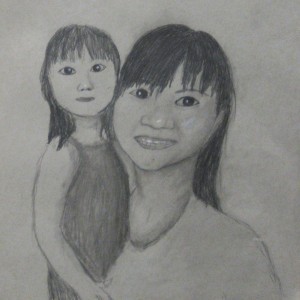
Vivian Chen, Josephine Chen, Ivan Chan, Zafirah Rahman, Neeharika Reddy, Daniel Shi, Daniel Shi, Jacqueline Cho & Osiris Guerrero

Jennifer Moran, Adebola Ademola, Julia Hong, Vicki Kanellopoulos, Inga Kulma, Maimunah Virk, Deborah Molina & Kailey Van
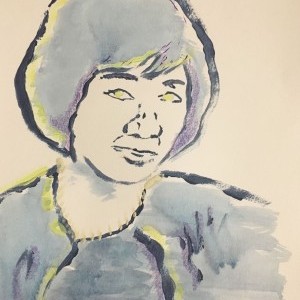
Kristina Chang, Sarah Chowdhury, Bethany Leung, Letian Fang, Cathy Choo, Kelly Chan, Emily Tan, Adamary Felipe & Kenney Son

